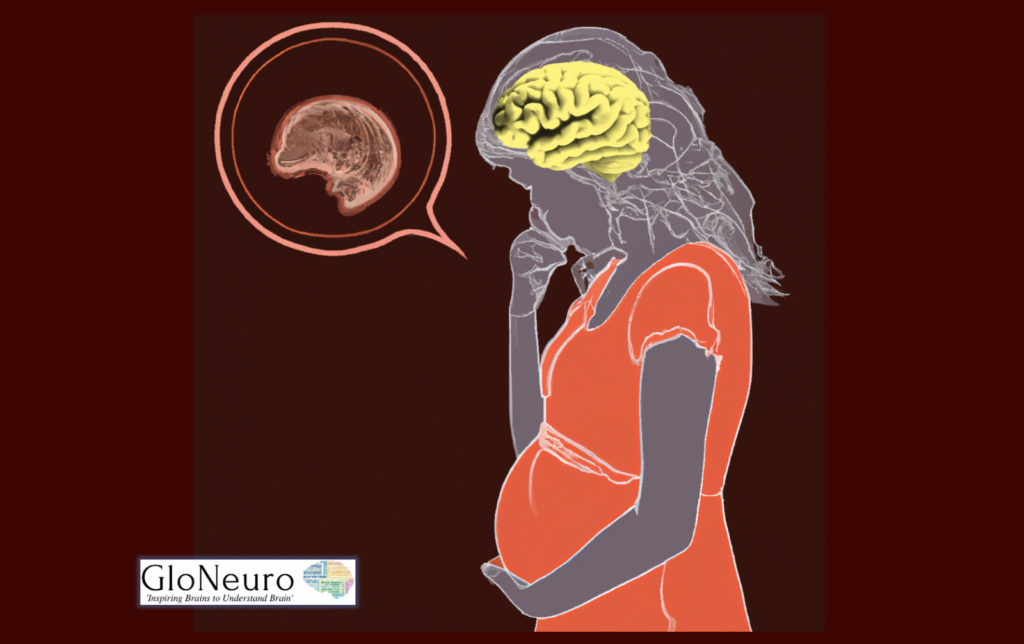July 30, 2023
Author: Isha Kaushik
Editor: Dr. Shampa Ghosh
Step into the intriguing world where the boundless expanse of neuroscience intertwines with the pressing concerns of our changing climate. Welcome to GloNeuro, your gateway to understanding the captivating relationship between the brain and the environment. In this riveting blog, we explore the uncharted territories of how climate affects our mental health, unraveling the hidden impacts of rising temperatures, extreme weather events, and infectious diseases on our precious cognitive functions and emotional well-being. Join us on this enthralling GloNeuro journey as we uncover the profound interplay of the mind and the ever-evolving world around us.
Climate change’s far-reaching impacts on our environment have been a topic of global concern, but its profound effects on mental health often go unnoticed. As I read the distressing headline, “Humans approaching limits of survivability as sweltering heatwaves engulf parts of Asia,” panic gripped me, and I couldn’t help but wonder how our brains cope with such extreme conditions.

The reality is that climate change is an undeniable fact, and even if we were to cease greenhouse gas emissions immediately, we cannot escape the significant temperature increases caused by the long-lasting greenhouse gases already present in the atmosphere. While we often associate climate change with floods, droughts, wildfires, and biodiversity loss, its impact on brain health is equally severe, if not more. Heat exposure, in extreme circumstances, can lead to hyperthermia and heat stroke, proving to be fatal. With rising global temperatures, the occurrences of such conditions are expected to climb. Furthermore, heat exposure and changes in air quality due to climate change have been linked to an increase in migraines, seizures, stroke, and various forms of dementia, including Alzheimer’s disease. The brain suffers from a host of metabolic, cellular, inflammatory, and microvascular changes due to heat exposure, leading to potential neurological consequences such as seizures and neurodegeneration.
One cannot overlook the distressing reality faced by individuals already living with neurological impairments who are disproportionately vulnerable to climate challenges. For example, individuals with Dravet syndrome have difficulty regulating their body temperatures, making them susceptible to adverse effects during heatwaves. This highlights the cumulative consequences of climate change for people suffering from neurological illnesses. A report from the Indian Journal of Medical Research even indicates a substantial number of heat-related deaths due to brain damage.
Adding to the alarming scenario, infectious diseases that were once regionally restricted to specific areas near the equator are spreading to more temperate regions as climate change creates a tropical-like environment. Mosquito-borne illnesses like Dengue, Zika, Chikungunya, West Nile, and Yellow Fever pose a direct threat to neurological health, with severe neurological conditions reported in cases of Yellow Fever and Zika. Furthermore, Malaria, caused by Plasmodium falciparum, can lead to epilepsy, cognitive defects, and behavioral deficits, with its geographic distribution expanding due to climate change.
On a more relatable level, many of us have experienced difficulty in thinking and working during heatwaves, floods, or fires. These meteorological catastrophes have been associated with an increase in depression and anxiety symptoms. The impact of high temperatures on mental health-related deaths and suicide occurrences is disconcerting. Climate change has also been linked to increased manic episodes in individuals with bipolar disorder, leading to psychosis and suicide. Moreover, heat can reduce the effectiveness of psychiatric drugs, such as antipsychotics, potentially causing dehydration and impacting mental health.
The repercussions of climate change on mental health demand immediate attention. Impaired cognitive functions, disrupted emotional regulation, declining creativity, and social interactions, decreased productivity, and economic costs all paint a dire picture. The global economic impact of mental illness has been estimated at least $2.5 trillion, but the additional cost caused by climate-induced mental health decline remains unaccounted for. For instance, the 2020 Australian bushfires resulted in a $76 million investment in psychological treatment for those affected. Quantifying the burden of climate change on mental well-being is essential.
To secure a brighter future, we must educate ourselves about climate change intricacies and raise awareness. We need further research to understand the challenges faced by individuals with neurological disorders and reimagine our built architecture for resilience against heatwaves. Governments worldwide must deploy replicable strategies to achieve net-zero emissions and ensure climate information effectively crosses cultural and linguistic barriers. Transforming eco-anxiety into eco-intentions is also crucial.
“We are the first generation to feel the impact of climate change and the last generation that can do something about it,” as aptly stated by Barack Obama. Our collective efforts, informed by scientific, political, and technological inputs, can bring about change and address the mental health challenges posed by climate change. It’s time to act, together, now.
References
- Sanjay M Sisodiya, Climate change and the brain, Brain, Volume 146, Issue 5, May 2023, Pages 1731–1733, https://doi.org/10.1093/brain/awad076
- Padhy, S. K., Sarkar, S., Panigrahi, M., & Paul, S. (2015). Mental health effects of climate change. Indian journal of occupational and environmental medicine, 19(1), 3–7. https://doi.org/10.4103/0019-5278.156997
- American Geophysical Union. (2020, August 18). The tropics are expanding, and climate change is the primary culprit. ScienceDaily. Retrieved July 18, 2023 from www.sciencedaily.com/releases/2020/08/200818094013.html
- Hu Yang, Gerrit Lohmann, Jian Lu, Evan J. Gowan, Xiaoxu Shi, Jiping Liu, Qiang Wang. Tropical expansion driven by poleward advancing mid‐latitude meridional temperature gradients. Journal of Geophysical Research: Atmospheres, 2020; DOI: 10.1029/2020JD033158
- Zammit, C., Torzhenskaya, N., Ozarkar, P. D., & Calleja Agius, J. (2021). Neurological disorders vis-à-vis climate change. Early human development, 155, 105217. https://doi.org/10.1016/j.earlhumdev.2020.105217
- Xu, J., Fan, Y., Li, L., Qiu, Y., Wang, Z., Han, S., Yin, J., Liu, W., Peng, B., & He, X. (2013). Hyperthermia-induced seizures: development of hyperthermia-prone and hyperthermia-resistant rats. Epilepsy research, 106(3), 311–317. https://doi.org/10.1016/j.eplepsyres.2013.07.002
- Baker, R.E., Mahmud, A.S., Miller, I.F. et al. Infectious disease in an era of global change. Nat Rev Microbiol 20, 193–205 (2022). https://doi.org/10.1038/s41579-021-00639-z
- Bongioanni, P., Del Carratore, R., Corbianco, S., Diana, A., Cavallini, G., Masciandaro, S. M., Dini, M., & Buizza, R. (2021). Climate change and neurodegenerative diseases. Environmental research, 201, 111511. https://doi.org/10.1016/j.envres.2021.111511
- Ayeni, E.A.; Aldossary, A.M.; Ayejoto, D.A.; Gbadegesin, L.A.; Alshehri, A.A.; Alfassam, H.A.; Afewerky, H.K.; Almughem, F.A.; Bello, S.M.; Tawfik, E.A. Neurodegenerative Diseases: Implications of Environmental and Climatic Influences on Neurotransmitters and Neuronal Hormones Activities. Int. J. Environ. Res. Public Health 2022, 19, 12495. https://doi.org/10.3390/ijerph191912495
- Jose Guillermo Cedeño Laurent, Augusta Williams, Youssef Oulhote, Antonella Zanobetti, Joseph G. Allen, John D. Spengler. Reduced cognitive function during a heat wave among residents of non-air-conditioned buildings: An observational study of young adults in the summer of 2016. PLOS Medicine, 2018; 15 (7): e1002605 DOI: 10.1371/journal.pmed.1002605
Explore New Articles from GloNeuro
From Womb to World
Exploring the Effects of Maternal Anxiety on Fetal Brain Development
Motherhood is a transformative journey filled with immeasurable joy, but it is not without its fair share of anxiety and stress. The emotional well-being of expectant mothers plays a pivotal role in shaping the developing foetal brain, setting the stage for a child’s lifelong trajectory.



